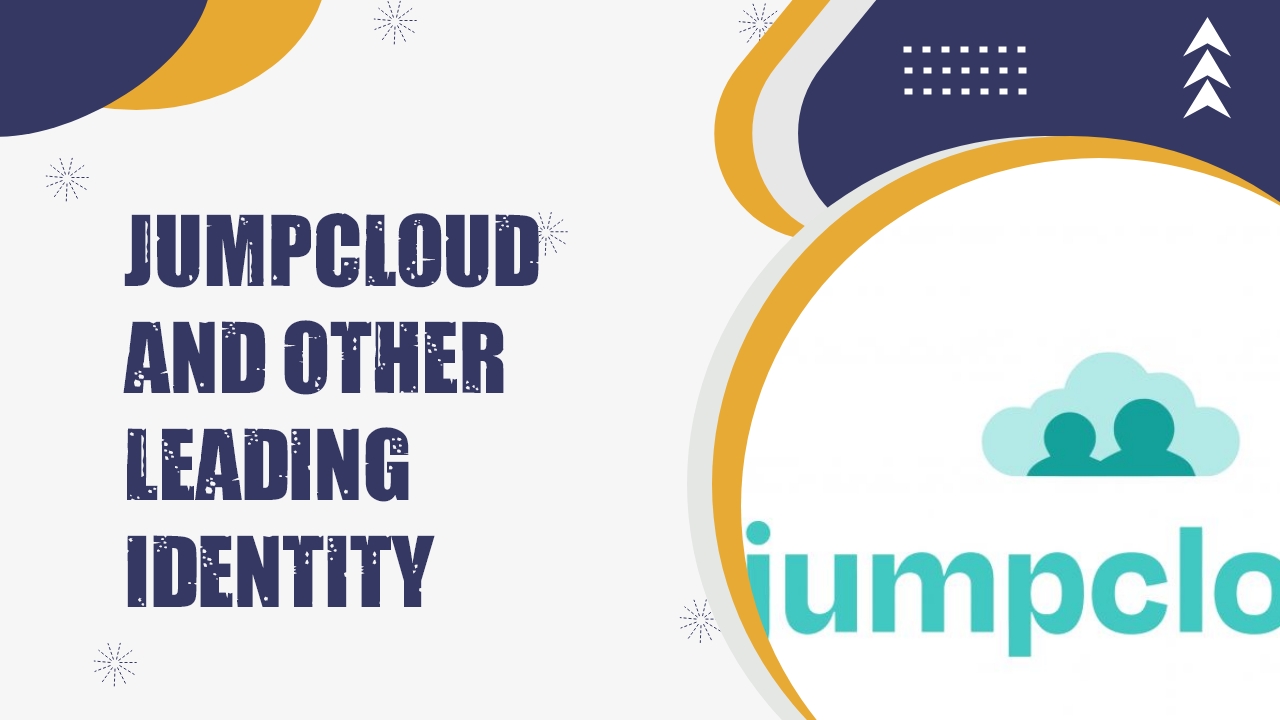JumpCloud and 4 Other Leading Identity and Access Management Companies
In today’s digital age, managing identities and access to systems and data is crucial for maintaining security and efficiency within organizations. Identity and Access Management (IAM) solutions help businesses control and secure user access to resources, ensuring that only authorized individuals can access sensitive information. Among the top players in the IAM space, JumpCloud stands out for its innovative approach and comprehensive platform. Here’s a look at JumpCloud and four other leading IAM companies that are shaping the future of identity management.
1. JumpCloud
Overview: JumpCloud is a cloud-based IAM platform designed to provide unified management of user identities and access across a variety of systems, applications, and networks. The company’s platform is known for its flexibility and comprehensive capabilities, making it a popular choice for modern IT environments.
- Cloud-Based Identity Management: JumpCloud offers a cloud-native solution that enables organizations to manage user identities and access from a single platform. This eliminates the need for on-premises infrastructure and simplifies administration.
- Unified Directory Services: The platform provides unified directory services, allowing organizations to manage user identities, access controls, and authentication across various systems, including Windows, macOS, Linux, and cloud applications.
- Zero Trust Security Model: JumpCloud embraces the Zero Trust security model, which requires verification of every request for access, regardless of the user’s location or network. This approach enhances security by reducing the risk of unauthorized access.
- Integration Capabilities: JumpCloud integrates with a wide range of applications and services, including Microsoft Office 365, Google Workspace, and various SaaS applications. This integration capability helps streamline user management and access control.
JumpCloud’s cloud-based, unified approach to IAM and its support for the Zero Trust model make it a leading choice for organizations looking for a modern and flexible identity management solution.
2. Okta
Overview: Okta is a leading provider of identity and access management solutions, known for its comprehensive platform that supports single sign-on (SSO), multi-factor authentication (MFA), and lifecycle management. The company’s solutions are widely used by organizations to secure and manage user access to applications and systems.
- Single Sign-On (SSO): Okta’s SSO capabilities allow users to access multiple applications with a single set of credentials, simplifying the login process and improving user experience.
- Multi-Factor Authentication (MFA): Okta offers robust MFA options to enhance security by requiring additional verification factors, such as SMS codes or biometric authentication, in addition to passwords.
- Lifecycle Management: The platform includes lifecycle management features that automate user provisioning and de-provisioning, ensuring that users have appropriate access based on their roles and responsibilities.
- Integration Ecosystem: Okta integrates with thousands of applications and services, providing seamless connectivity and centralized management for a wide range of IT environments.
Okta’s comprehensive IAM solutions, including SSO, MFA, and lifecycle management, make it a leading choice for organizations seeking a scalable and secure identity management platform.
3. Microsoft Azure Active Directory (Azure AD)
Overview: Microsoft Azure Active Directory (Azure AD) is a cloud-based identity and access management service that is part of Microsoft’s Azure cloud platform. It provides a range of IAM capabilities designed to support enterprise-level identity management and security.
- Cloud-Based Directory Services: Azure AD offers cloud-based directory services that enable organizations to manage user identities and access across various applications and resources. It integrates seamlessly with Microsoft 365 and other Microsoft services.
- Single Sign-On (SSO) and Conditional Access: Azure AD provides SSO capabilities, allowing users to access multiple applications with a single login. It also includes conditional access policies that enforce security requirements based on user risk and device compliance.
- Identity Protection: The platform includes identity protection features that use machine learning and risk-based policies to detect and mitigate potential security threats, such as compromised accounts and suspicious sign-ins.
- Integration and Collaboration: Azure AD integrates with a wide range of third-party applications and services, enabling organizations to manage access and collaborate with external partners effectively.
Microsoft Azure AD’s integration with Microsoft services, cloud-based directory services, and advanced security features make it a leading choice for enterprises seeking comprehensive IAM solutions.
4. Ping Identity
Overview: Ping Identity provides enterprise-grade IAM solutions that focus on identity security, SSO, and access management. The company’s platform is known for its flexibility and ability to support complex IT environments.
- Single Sign-On (SSO) and Federation: Ping Identity offers robust SSO capabilities, enabling users to access multiple applications with a single login. It also supports identity federation, allowing organizations to connect and collaborate with external partners securely.
- Multi-Factor Authentication (MFA): The platform includes MFA options to enhance security by requiring additional verification methods. Ping Identity’s MFA capabilities can be customized to meet specific security requirements.
- Adaptive Authentication: Ping Identity uses adaptive authentication techniques that assess user risk and contextual factors to determine the appropriate level of access and security measures.
- Integration and Scalability: The platform integrates with a wide range of applications and services, and it is designed to scale with the needs of large and complex organizations.
Ping Identity’s focus on identity security, SSO, MFA, and adaptive authentication makes it a strong contender for organizations requiring flexible and scalable IAM solutions.
5. IBM Security Verify
Overview: IBM Security Verify is a comprehensive IAM solution that combines identity management, access control, and security analytics. The platform is designed to provide organizations with advanced capabilities for managing and securing user identities.
- Identity and Access Management: IBM Security Verify offers robust IAM capabilities, including user provisioning, access management, and SSO. The platform supports both cloud-based and on-premises applications.
- Behavioral Analytics: The solution includes advanced security analytics that leverage machine learning to monitor user behavior and detect anomalies. This helps organizations identify and respond to potential security threats.
- Governance and Compliance: IBM Security Verify provides tools for identity governance and compliance, helping organizations manage user access policies, enforce compliance requirements, and conduct audits.
- Integration and Flexibility: The platform integrates with a wide range of applications and services, offering flexibility and scalability to meet the needs of diverse IT environments.
IBM Security Verify’s combination of IAM capabilities, security analytics, and governance features makes it a powerful solution for organizations seeking comprehensive identity management and security.
Conclusion
Identity and Access Management (IAM) is a critical component of modern IT security, helping organizations manage user identities and access to systems and data effectively. JumpCloud, Okta, Microsoft Azure AD, Ping Identity, and IBM Security Verify are leading the way in this field, each offering unique capabilities and solutions to address various IAM needs.
Whether you are looking for a cloud-based, unified IAM platform like JumpCloud, a comprehensive solution with SSO and MFA like Okta, an integrated directory service like Microsoft Azure AD, a flexible and scalable option like Ping Identity, or a solution with advanced security analytics like IBM Security Verify, these top IAM companies provide the tools and expertise necessary to enhance security and streamline identity management.
By leveraging the strengths of these leading IAM providers, organizations can ensure robust security, improve user experience, and manage access efficiently in today’s complex digital landscape









